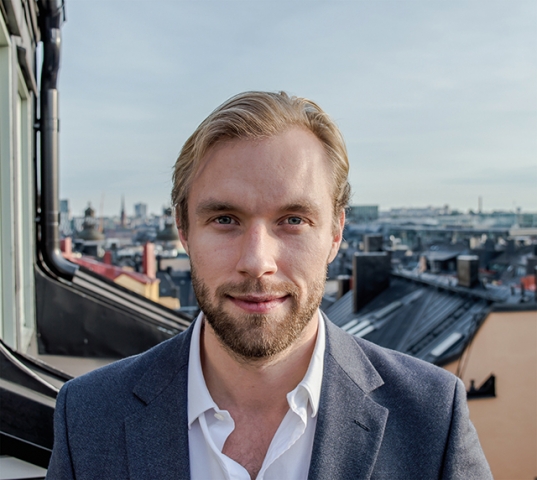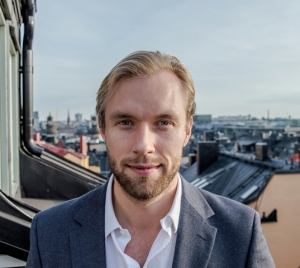Author Oscar Jonsson on the Russian Understanding of War
Interview
With President Putin successfully paving his way towards the “Tsar for Life” trophy, and the West once again pondering the conceivable ways of dealing, or rather, deterring Russia, the importance of awareness of the Kremlin’s nefarious tactics becomes as important as ever. To that end, the Georgian Institute of Security Policy spoke to Oscar Jonsson, author of highly-acclaimed ‘Russian Understanding of War’ for its new episode of ‘Insights on Putin’s Russia’ series.
“To understand the purpose behind Russia’s edging more towards non-military means of warfare, it needs a close look at modern Russian history,” Jonsson tells us. “After the [Russo-]Georgian War, the strategists in the Kremlin sat down and thought, hey, why did we lose the global information battle? And part of the answer they found was because of the structure of global international media. They realized they needed to increase their efforts in the global information environment: RT’s funding was expanded and channels were added in Arabic, French, and Spanish, RT UK came out, and RT US. After the Arab Spring, they saw how power was formed in social media and thought about how to best operate in this sphere. This resulted in ‘the troll farm’.
“I would argue that a lot of instances where Russia has been effective have come from a threat perception of losing in that field and building their offensive there. For instance, former Soviet Union countries have been very attracted by liberal democracy and rule of law, to the point where citizens revolted against rulers and replaced them with pro-Europeans. This was met with a political offensive and support for actors undermining Western and transatlantic unity.
“I think if you look at what Russia says, one of the things they insist on is a kind of renegotiating of a new settlement on international order and international security, which they feel does not currently favor Russia. It’s a very extensive goal, not likely to happen very soon: basically, an order which recognizes the spheres of influence and non-recognition of the sovereignty of its neighbors. I certainly don’t see peace as a mid-term prospect.”
Would it mean making the West accept the Russian perspective of things?
That’s the strategic goal that Russia has in all its diplomatic negotiations, in all interactions with the West: that’s a key goal in Russian foreign policy. They do not want a unipolar world and want to undermine the idea that human rights are universal, and propose that democracy can be different depending on where you are.
Despite strongly adhering to the “power is might” principle, Russia always claims to be on the defensive, acting from the position of a besieged power. What prompts that constant defensiveness?
It’s simple: it works. A lot of people buy into the narrative that Russia is a defensive power that was encroached on by the West. If we judge them upon the core principles by which international order stands, then they’re most often wrong, but it is an effective way of framing Russian actions.
How successful can the western attempts to avoid confrontation with the Kremlin be? Can this be seen as a sign of weakness by Russia?
Russian aggression is premised on the notion that the West tends to be very predictable, that the West will always negotiate for a solution. It gives Russia a strategic utility, and escalation control, whereby they can always try to isolate themselves, because they know the point where they will be able to back down and negotiate a solution. After the invasion of Ukraine, Lavrov allegedly said, “you are very angry right now, but you will forget about this in six months.” Actually, he would have been right if not for the accidental downing of the MH17; it was only after that we saw any substantial sanctions placed on Russia. Less than a year ago, the French President came out and said “we need to improve relations with Russia again.” This suggests that nothing substantial happened in Ukraine, that you have a significant large scale attack on the US presidential elections, use of chemical weapons on NATO territory, yet relations can be repaired. So, I would ultimately agree with the notion that the West is predictable.
What does it say about the West that it took the downing of the aircraft to actually force their hand to resort to sanctions, and that what happened in Georgia and Ukraine was not enough?
It shows first of all how far the security policy has slipped out of the minds of the European governments since the notion of eternal peace took hold after the end of the Cold War. It’s a very typical trend in most western countries that questions of security have been demoted to the point they are not top in the minds of politicians. Our first line of defense is the notion that international law applies, but, sadly, I think the security and defense questions have been left behind: we don’t want to accept economic pain for geopolitical gain.
What should we expect from the obvious outcome of the Russian referendum?
What’s interesting now is the popularity figures, but coupled with the things Putin has promised, in bringing stability, economic growth, or at least national pride to the global stage, a lot of this is undermined, and we are seeing a notable drop in the handling of the coronavirus. The virus is a concrete physical phenomenon; it’s not something you can blame on someone else or pretend does not exist. As such, we need to keep in mind that although it looks worse than ever, Putin has remained in power to a large degree because of his genuine popularity in Russia.
Each time Putin's popularity dropped dramatically, he pulled out a card and climbed back up, either via a small victorious war or a piece of cake from Ukraine. Any idea what to expect next?
Putin came to the presidency as Mr Nobody, yet managed to win the elections within a couple of months. In his career, there’s a strong correlation between public approval and military actions.
What could be next on the cards? The annexation of Belarus? I don’t think so: I hardly see it being popular. What we need to understand about Ukraine is that the circumstances were quite unique, with no central government; with an area that was previously part of Russia. I would be cautious to predict too much, but I don’t want to exclude that much either.
Is what Russia is now down to what Putin is and has done for the country? Will there come a time when Putin won't be there either physically or politically that might give the West another chance?
Short of a change in the system governing Russia, the person that comes after is likely to act similarly, in part because the choices are shaped both by the interest of the elites and from popular support. I have a hard time seeing a genuine reconciliation, short of a change in the international system.
By Vazha Tavberidze












